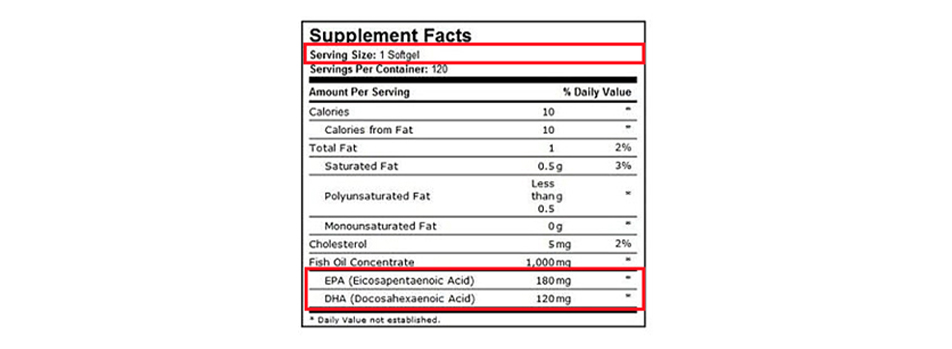
This post was written by Meagan Ellinger, PharmD, and Jennifer Sposito, PharmD, BCPS, Parkview Health.
Fish oil is a common name for a product which contains eicosapentaenoic acid (EPA) and/or docosahexaenoic acid (DHA). EPA and DHA are sometimes referred to as omega-3 fatty acids. Our bodies are not able to make omega-3 fatty acids on their own. Because we must obtain these through our diet, they are called essential fatty acids.
Now that we have a general idea of what fish oil is, let’s explore some of the most common questions around supplementing with EPA and/or DHA to protect our heart health.
What foods contain fish oil?
Fatty fish are rich in omega-3 fatty acids. The American Heart Association recommends that adults eat 2 servings of fatty fish each week. A serving is 3 ounces of cooked fish. The fish should be baked or broiled, not fried. Salmon, herring, lake trout, albacore tuna, sardines and mackerel are considered fatty fish.
For most people, eating fatty fish is a better source of omega-3 fatty acids than taking fish oil supplements.
What medications contain fish oil?
Fish oil can be purchased without a prescription. The quality and amount of omega-3 fatty acids may vary between different products. It is helpful to check the product label for the omega-3 content. The omega-3 content is the EPA amount plus the DHA amount.
In the product label below, there is 1,000 mg of fish oil concentrate. However, this product only contains 300 mg (180 mg + 120 mg) of EPA and DHA.

Fish oil is also available with a prescription from your healthcare provider. Prescription fish oil can be more expensive, however may require less capsules to be taken per day.
What is the benefit of fish oil?
Fish oil can be used to lower triglycerides. There is small evidence that it may help to prevent heart disease and stroke.
Who should take fish oil?
People who have high triglycerides may be prescribed fish oil by their doctor to help lower triglycerides. Fish oil can reduce triglycerides by 20%-50%.
The American Heart Association does not recommend taking fish oil to prevent heart attack or stroke. For people who have already had a heart attack or stroke, the American Heart Association states that fish oil use may be beneficial, but data is limited. Overall, there is no strong evidence to support taking fish oil to prevent heart attack or stroke.
How much fish oil should I take?
To lower triglycerides, it is recommended to take 2-4 grams of omega-3 fatty acids per day. The only products indicated to lower triglycerides are prescription medications (Lovaza® and Vascepa®).
The American Heart Association states that 1 gram per day of omega-3 supplements is the recommended dose for people who have already had a heart attack or stroke. For non-prescription fish oil, it is not recommended to take more than 2 grams of omega-3 fatty acids per day.
What are common side effects of fish oil and how should they be managed?
Fish oil may cause nausea, heartburn or diarrhea. It can also leave a fish taste in the mouth. Taking the fish oil with meals may help with these symptoms. Refrigerating or freezing the fish oil capsules may also help to decrease the fishy taste, however the prescription medications (Lovaza® and Vascepa®) should not be refrigerated or frozen.
Fish oil can increase the risk of bleeding or bruising. Typically, doses greater than 3 grams per day of omega-3 fatty acids have the highest risk of bleeding. People who currently take a blood thinner, such as aspirin or warfarin, should speak with their healthcare provider before taking fish oil.
People who are allergic to seafood may also be allergic to fish oil supplements and should avoid use or speak to their doctor before they take fish oil.
What are other ways to improve my heart health?
Eating a healthy diet full of whole grains, vegetables, fruits and protein can help improve heart health. The American Heart Association recommends getting at least 150 minutes of moderate-intensity aerobic exercise or 75 minutes of vigorous aerobic activity each week. Smoking cessation also lowers the risk of heart attack and stroke.

Here are more recommendations, from the team at the Parkview Heart Institute.



